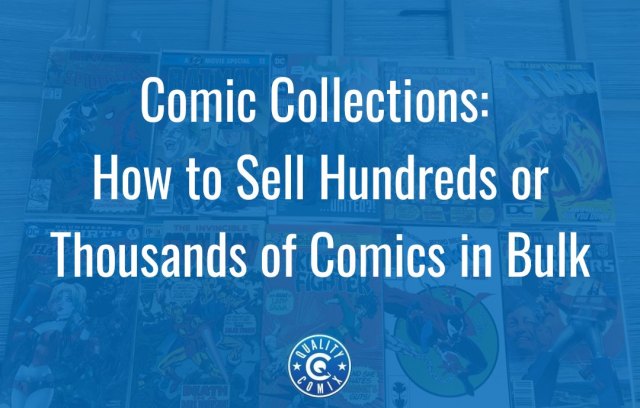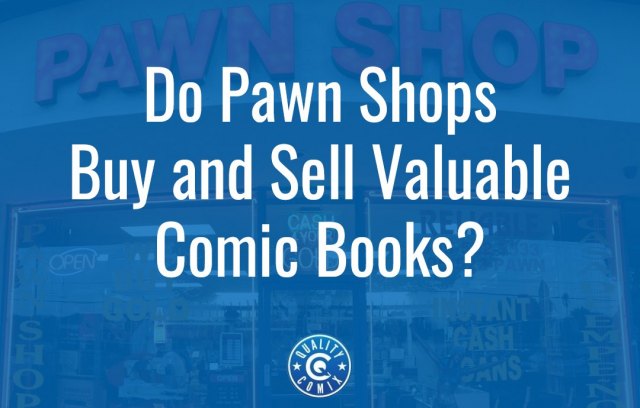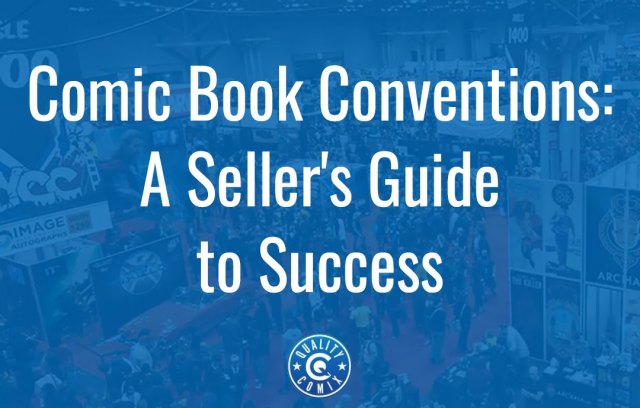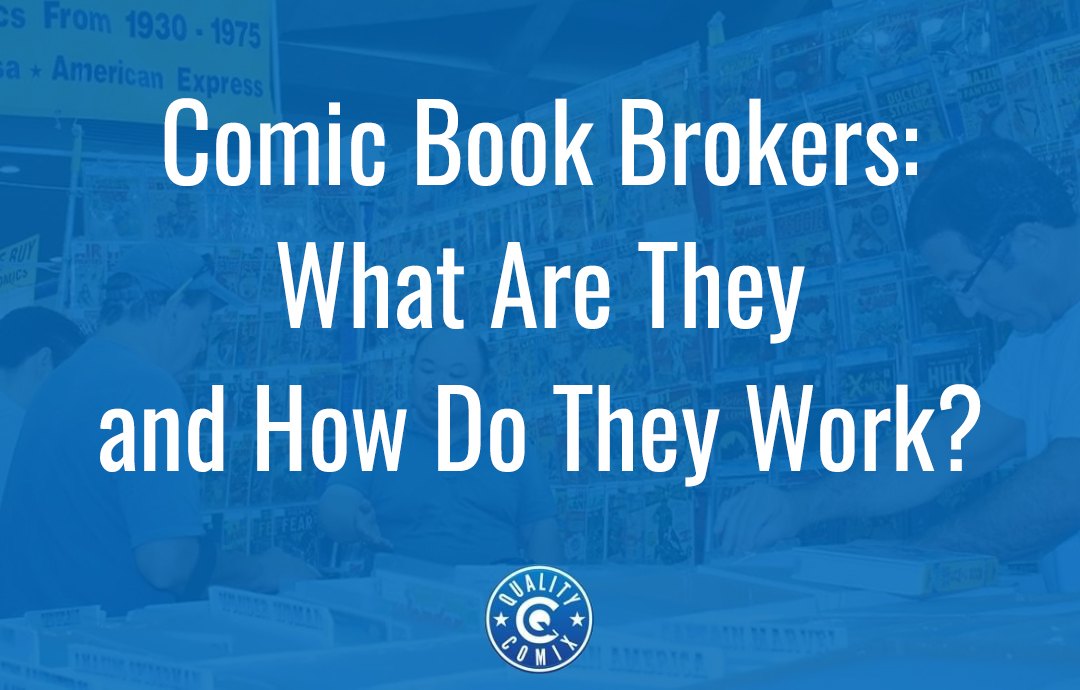
Comic book brokers are a particular breed of traders in the comics industry. Some people dislike them, while others find them invaluable. When you're buying or selling comics, a broker might be a great idea, but a lot of it depends on your specific situation. Let's talk a bit more about it!
Table of Contents
What Is a Comic Book Broker?
Comic book brokers are just like brokers in any other industry.
"A broker is an independent party whose services are used extensively in some industries. A broker's prime responsibility is to bring sellers and buyers together, and thus, a broker is the third-person facilitator between a buyer and a seller." – Wikipedia.
Brokers can be individuals, or they can be companies. Individual brokers are more like real estate agents, accessing information the average individual otherwise can't, connecting them with deals you can't find normally, and facilitating a large purchase. Company brokers are more like brokerage firms, organizations you can use to buy and sell on the stock market for a small fee.
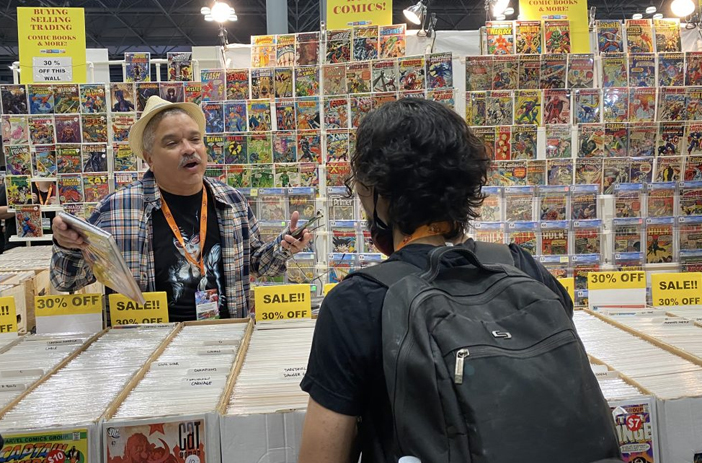
Image source: Google Images
In comics trading, a broker fills the same role. If you're a buyer, you might have trouble finding the particular comics you're looking for at the right grade you want or at a price point you can afford; a broker can go out, leverage their network and connections, and find those comics for you.
Conversely, as a seller, a broker can broaden your audience. Rather than listing your books on eBay or Heritage Auctions, a broker can connect you with individual private buyers who are interested in specifically the comics you have, for a better price, with lower fees, and a smoother trade.
There are also broker-dealers or dealer-brokers. These are generally businesses, often large-scale comic shops like Sparkle City, who deal with comics nationally or internationally. In order to facilitate their own deals and trades, they broker between their customers and broker with their own store as an entity as well. It's not much different than a comic shop buying and selling comics, except there are specific individuals to talk to rather than just store management.
The Benefits a Broker Provides to a Buyer
If you're a collector looking to buy comics, where do you start?
You can look on eBay, in a local comic store, or in one of the national retailers who saturate the market. You can also check sites like ours and see what's up for sale.
What happens, though, if you want a specific issue of a specific comic in a specific grade? Maybe you want, say, a copy of Incredible Hulk #181, the prized first appearance of Wolverine. Maybe you don't have the funds for a 9.9 grade, though, so you're aiming for something a little lower to meet your budget.
If you're looking on eBay, you're going to have issues. Not only are you gambling that the comic you want, in the grade you want, is available – you're also gambling that the seller isn't trying to pull a fast one over on you and that the price is actually appropriate. On top of that, eBay's search can be fickle, and a search for Hulk 181 can pull up all kinds of wrong results.
You can check with your local comic store, but are they going to have a copy in your price range? Maybe, maybe not. Most comic stores don't actually have the room to keep track of thousands of key issues in different grades, so their stock is going to be limited. You probably won't find what you're looking for.
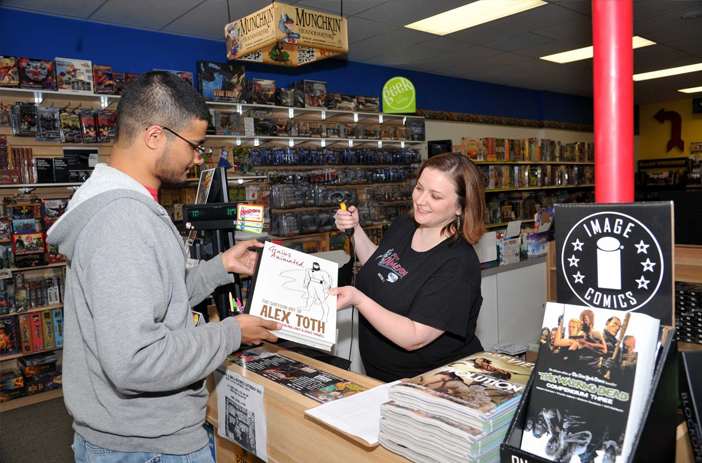
Image source: Google Images
You can check other sources online, of course. We might have a copy. Or we might not; you never know. That's the problem! It can be a difficult and time-consuming task to find the issues you want in a price range you can afford.
A broker cuts through all of this hassle. They have a deep list of connections to comic stores, private dealers, and collectors. When you contact them and ask them to find a copy of Hulk #181 for you in a price range you can afford, they put out their feelers and locate someone with exactly that copy to sell. They hook you up, you make the deal, and both you and the seller walk away happy. No fees to eBay, no worries about one party or the other pulling a fast one, just a smooth, simple trade.
Comic book brokers often specialize, as well. One might be an expert in golden age comics, while another prefers to deal with comics from more recent eras, and another might be big into indies. Finding the right broker can make all the difference in the world.
The Benefits a Broker Provides to a Seller
What about as a seller? If you want to sell a comic, you can just list it on eBay, right? Or, if it's particularly valuable, try to sell it through Heritage Auctions. Most buyers know to look in those locations for what they're after, right?
Well, it's not always so simple. As you might know from experience or reputation, eBay can be fraught with peril. There are all kinds of shady or outright scammy buyers – let's put "buyers" in quotes here – who either have no intention of actually buying, are trying to use eBay as a phishing venue, or plan to file some kind of chargeback once they get their comic, leaving you with no recourse. As a platform, eBay tends to favor the buyer in disputes as well, so being a seller puts you at a disadvantage.
Heritage Auctions is reputable, but the list of comics they're willing to facilitate is very small. They tend to deal in high-value items, after all, and they aren't going to want to trade in some comic only worth a few thousand bucks.
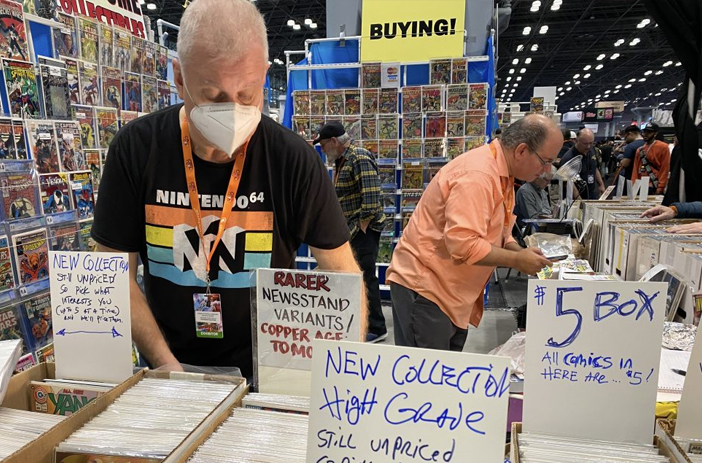
Image source: Google Images
Other options exist, of course. We buy comics, both individually and as collections, and give you top dollar while ensuring your books go to a good home. We're just one company, though, and we don't saturate the market. We're not a household name (yet), so our audience isn't as big as something like eBay.
A broker can step into this situation with their network of connections, and they can find a buyer for your comics quickly and easily. They often have buylists on hand from collectors they know and trust or from comic shops with standing offers above what the usual buylist price may be. If they can't facilitate a private sale, they know the shops with the best prices and can get you top dollar for your comics. Dealer-brokers, too, can just buy your comics directly without worrying about a third party.
Overall, it's a faster, smoother process than trying to sell comics (especially valuable comics) individually and personally.
What Does the Broker Get Out of It?
Money, of course.
Brokers operate on commission most of the time. That means they have a fee, usually assigned as a percentage of the value of the sales they facilitate. So if you're selling a comic worth $5,000 (or buying that same comic), and the broker asks for a 5% commission, they're getting $250 out of the deal.
Who pays this fee? That depends on the broker. Sometimes, the fee is paid by whoever approaches the broker. A seller wants to sell, and the broker facilitates the sale and takes a bit of the cash from the transaction. Other times, the buyer comes to the broker and wants to buy and is willing to pay a smidge more to ensure they get what they want, which covers the broker fee.
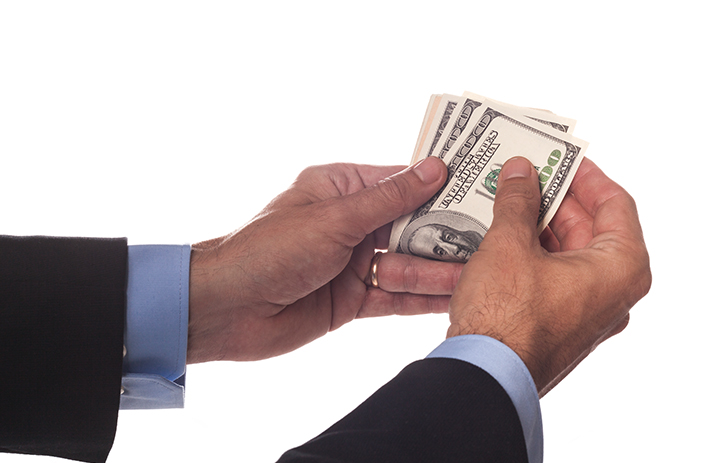
Often, though, it's a split fee. It's the same as what you might find in real estate. A broker might have a 5% fee on that transaction, and they take 2.5% from each side of the transaction. The buyer spends $5,125 for the comic, the seller receives $4,875, and the broker walks away with $250. An even split helps minimize the need to track individual transactions and worry about equitable divisions when it's simply 50/50.
This isn't always the case, of course. Brokers might represent themselves and their own stores. In these cases, the broker doesn't usually charge a fee when they buy or when they sell because they're flipping the comics, and their profit is built into the transaction. They buy low – higher than a buylist price, but lower than a true private sale – and they sell high, at market rates. Their "fee" is built into this as a dealer.
Other than that, brokers can be in it for the love of the game. Brokers are almost universally big fans of comics, love trading, and like to network with other comic fans. They go to conventions, they build personal networks, they're given the opportunity to explore private collections that wouldn't otherwise be available to even look at, and they do all of it while making their living. What's not to love?
Why Do Some People Dislike Brokers?
Being a broker a few decades ago was a place of privilege. Without a broker and before widespread internet use, how would you find a buyer or seller for the comics you want or have? You'd have to go to a local store and hope they know someone, visit a convention and hope a dealer is interested, or put out classified ads. There weren't a lot of options, and brokers served a valuable purpose in building networks, connections, and lists of who wants what and who has what for sale.
These days, with the proliferation of sites like eBay, Heritage Auctions, Quality Comix, Sparkle City, and others, the role of the broker has greatly diminished. Why would you want to go to a broker and pay their fee if you can just list the comic on eBay for what is often a smaller fee? Why would you want to go through a broker when you can fill out a form and have an offer for your comics in your inbox in a few hours?
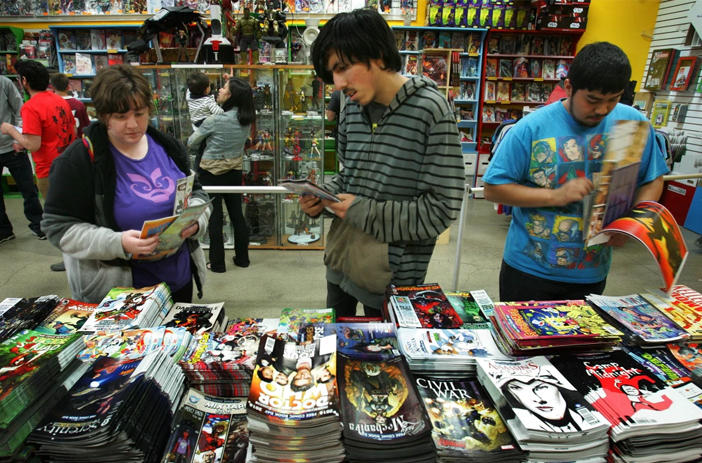
Image source: Google Images
As with any market, there's also the risk of bad actors. Now and then, a broker might crop up who has excessive commissions, deals in sub-par comics, or generally gives brokers a bad name. They're in it for the money, not for the love of comics, and it really shows. Luckily, these folks are generally rare.
The biggest issue, though, tends to be the dealer-brokers. Many people view these people as nothing more than flippers, cynically buying comics for less than they're worth, selling them for inflated prices, and generally driving up "values" across the industry. While this is good for the dealers and good for the people who have older comics they want to sell, it also hurts the industry as a whole. After all, if any comic worth collecting has at least a $10,000 price tag, how is anyone going to be introduced to the hobby? Many people don't have that kind of starting budget and will choose a different hobby instead.
Is a Broker Right for You?
Whether or not a broker is right for you depends on what you're doing.
If you want to buy comics, and those comics are generally hard to find or are generally outside of your price range, a broker can help you find exactly what you need. They have connections you don't have, and while you might eventually be able to find what you're looking for, it could take a long time to do.
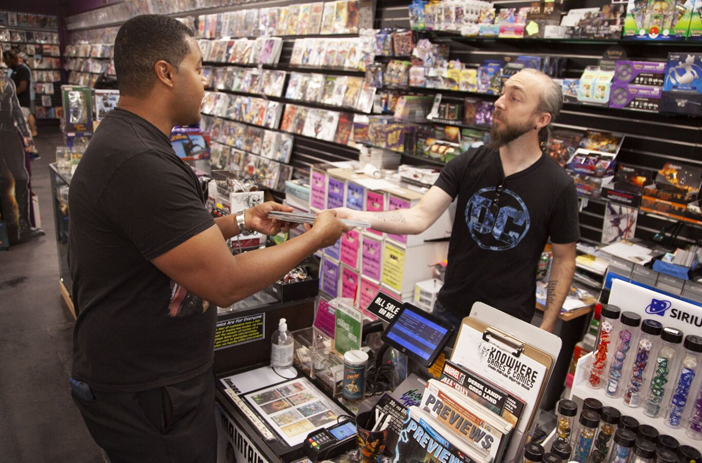
Image source: Google Images
If you want to sell comics, your options are many. Selling to a comic store can be hard if they don't deal in the kinds of comics you have. Platforms like eBay only work for valuable comics, and the non-key issues you have might not sell. Other avenues are sporadic at best. A broker can help you sell your whole collection or make sure you can sell comics that are otherwise less desirable because of their grade or their value.
Whether you're looking to buy comics or sell comics, you can always talk to us, first and foremost. Drop us a line and have a chat! There's no obligation; we just love talking about comics and how we can help you enjoy the hobby, liquidate a collection, or anything in between.

